#cognitivefunctioning
Explore tagged Tumblr posts
Text
A chart I make for MBTI!
Please comment and give your opinions about how accurate it is and how I can improve it!

#MBTI#MyersBriggs#MyersBriggsTypeIndicator#PersonalityTypes#Psychology#Temperament#CognitiveFunctions#ISTJ#ISFJ#ESTJ#ESFJ#ISTP#ISFP#ESTP#ESFP#INTJ#INFJ#ENTJ#ENFJ#INTP#INFP#ENTP#ENFP#Personality#SelfDiscovery#UnderstandingPeople#Typology#Psychometrics#PersonalityTheory#HumanBehavior
10 notes
·
View notes
Text
introverted cognitive function (Ni, Si, Ti, Fi) dom stacking (IEIE, IIEE)
INTJ: NiTeFiSe, NiTiFeSe
INFJ: NiFeTiSe, NiFiTeSe
ISTJ: SiTeFiNe, SiTiFeNe
ISFJ: SiFeTiNe, SiFiTeNe
INTP: TiNeSiFe, TiNiSeFe
INFP: FiNeSiTe, FiNiSeTe
ISTP: TiSeNiFe, TiSiNeFe
ISFP: FiSeNiTe, FiSiNeTe
extraverted cognitive function (Te, Fe, Ne, Se) dom stacking (EIEI, EEII)
ENTJ: TeNiSeFi, TeNeSiFi
ENFJ: FeNiSeTi, FeNeSiTi
ESTJ: TeSiNeFi, TeSeNiFi
ESFJ: FeSiNeTi, FeSeNiTi
ENTP: NeTiFeSi, NeTeFiSi
ENFP: NeFiTeSi, NeFeTiSi
ESTP: SeTiFeNi, SeTeFiNi
ESFP: SeFiTeNi, SeFeTiNi
21 notes
·
View notes
Text
Everyone keeps saying Anthony Lockwood is an ENFJ not an ENTJ because he is empathetic, emotionally supportive, sweet, constantly caring... But HEAR ME OUT, Anthony Lockwood is DEFINITELY an ENTJ!!!📣
Generally, ENTJ is described as "Decisive, Strategic, Organized, Energetic, Articulate", which is the perfect description for Anthony Lockwood.
To be more specific, we can look into the 2 functions that separate an ENTJ and an ENFJ:
📍1. Te as primary function:
📍Lockwood makes it quite clear that he cares about efficiency the most. That's why he left for the case before George finishes his research and is complained repeatedly by George because of how he does everything so fast, without enough preparation.
📍Lockwood is relentless, achievement-oriented, action-oriented, and is described as the exact opposite to George, an INTP (we all know that ENTJ and INTP have the exact opposite functions).
ENTJ: Te, Ni, Se, Fi
INTP: Ti, Ne, Si, Fe
"In many ways, Lockwood was the complete opposite of George,... He had no interest in the mechanics of ghosts, and little in their individual desires or intentions. All he really wanted was to destroy them as efficiently as possible." (from book 2)
Lockwood doesn't care about exploring and figuring out how things work, what causes the Problem,... He just wants to focus on the next goal, get work done in the most efficient way, wants to achieve, to make Lockwood & Co. become the best agency and so on. He is impatient with what he perceives as inefficient, which is spending a lot of time on preparing and researching like George always does. His Te primary function is obvious when compared with George's Ti primary function.
📍However, this doesn't mean he doesn't care about others' well being and feelings. You all need to stop saying Lockwood is an ENFJ because he has golden retriever energy, he is sweet and caring, etc... WHY CAN'T AN ENTJ BE EMPATHETIC, ENCOURAGING AND SWEET? An ENTJ is so much more than those harsh, controlling freak ENTJ stereotypes. Have you seen Gordon Ramsay, an ENTJ, spending time with kids and his own daughters? He's also really sweet, supportive and encouraging when the kids make mistake and stressed out.
Having said that, it doesn't mean Lockwood isn't being a jerk sometimes. Because of his Te primary function, he ignores Lucy's words to leave her out of public attention and go on to talk about to talent in order to promote his agency. Lockwood also left for the case without waiting for George and his research, leading to their enormous debt, just because of the same reason: his Te primary function.
📍2. Fi as inferior function
📍"Fi is ENTJ's last function. Fi helps them to assess situations to see how things match up to their values and beliefs. They may think of their Fi as their “gut instinct”. It helps them learn to be sensitive to the values and feelings of those around them. It can act as a warning system when they think a decision makes sense logically, but somewhere inside, Fi is the alarm saying it’s a bad idea. However, because Fi is the TeNi’s weakest function, they will often act with the swift decisiveness of Te first, before considering how their actions might affect the feelings of others or taking time to think about whether their decision lines up with their values."
Lockwood risks his life a lot just to build his agency's reputation. He loves dangerous cases as they make the agency famous, and also makes a lot of money to keep the agency working. Though this may sound like the fastest and most efficient way to achieve his goal, it is a bad idea. But since Fi is his weakness, Lockwood couldn't hear that inner voice and just do it anyway.
In the books, when Lockwood is stressed and in a weaker mental state, his Fi inferior function comes out. Then he will start to think about all of this, wonder why he does what he does, and if it aligns with his personal values...
📍We can also compare with ENFJs. ENFJ has Fe as their primary function, which means they rub off with others' emotions, they love to connect with people and they focus heavily on relationships.Lockwood, an ENTJ, on the other hand, is a bit reserved, he keeps personal feelings close to his chest and he DOESN'T connect with other people at all (at first, it takes quite a long time for him to actually open up, and before that, he just stays distant.)
Relationships is actually his WEAKNESS, since Te is his primary function and Fi is his inferior function. Lockwood prioritizes efficiency and task completion over personal relationships and emotional well-being (in both himself and others, but mostly himself), which is a very ENTJ thing to do. He risks his life for dangerous cases because those make the agency more famous, he avoids Lucy's personal questions and refuses to develop his relationships with George and Lucy any furrther at first. Then he grows and learns to open up, becoming a better ENTJ.
📣 Besides, he leads the team well mainly because of his charm, his determination, his recklessness and also his logical thinking, rather than his empathy and compassion, like an ENFJ does. 📣
📍I think his craving for public attention is an Te primary function.
📍The craving for public attention is rather a craving for achievements, because he wants his agency to grow and become famous.
#lockwood and co#save lockwood and co#locknation#savelockwoodandco#anthony lockwood#lockwood & co#tumblr#cameron chapman#analysis#mbti types#mbti personalities#mbti personality types#mbti#mbti entj#mbti enfj#entj#enfj#cognitivefunction#cognitive function#jungian psychology#jungian typology#renew lockwood and co#lockwood and co season 2#lockwood#books#show#Lockwood and co show#lockwood and co books#lockwood netflix#mbti typing
22 notes
·
View notes
Text
I'm having a mbti crisis (fucking again, yes). I've read a lot about the differences between infj and intp, ni dom vs ti dom and each cognitive function but my head is actually exploding with so much information, which I don't even know if it gives away something and I'm just not seeing it? I don't know if the way i perceive information is logical and analytical because I do feel that it is sometimes but then again I'm all about patterns and that seems to be a recurring word in the infj archetype. I've always felt that I'm both intuition and rational, I don't really know where one begins but I just sometimes notice things and my head feels like a whole world with information that seems so useless but I can't help to gather from every single place i'm in? I don't even know, on the other side, I'm not clear minded and intuition oriented in a Ni way?? my head is all over the place and sometimes the amount of possibilities (another key word for Ne) overwhelms me HORRIBLY, like it freezes me, but I end up shutting every logical part of me to decide because otherwise i will never move on. Also I'm very much in tune with other people and sometimes it's so overwhelming to feel what other people feel and to be so conscious of every subtext in a social gathering is EXHAUSTING which is why i need so much alone time.
And lastly, i am future oriented but I don't know if it's in a Ni or Ne way. Let me give an example. Just a few seconds ago I've decided that I'm going to try and not put so many personal things in my phone because I know that a lot of people get robbed at least once in their lifes and it's very dangerous out there, especially now, so if someone were to take away my phone, all the things I care about would not be there. How would i do that? Taking pictures and printing them, keeping a journal instead of my phone notes, erase messages sometimes, etc.
I feel like with everything i wrote here It's kinda obvious but it really isn't to me, if someone has a piece of advice i would really appreciate it
#mbti personalities#mbti#cognitive functions#cognitivefunction#mbti conversations#mbti cognitive function#intp#intp personality#infj#infj personality#infj vs intp#ni dom#ti dom#FUCKING CRISIS again#what a drama#and a headache
25 notes
·
View notes
Text
HOW TO MEMORIZE MBTI COGNITIVE FUNCTIONS/STACKS
okay, so we're all familiar with the intj, esfj, entp and all those stuff! 16personalities would say that those people are merely "introverted, intuitive, thinking, and judging" and same goes to other mbti types, but when you fall deeper into this mbti thing, you realize that there are cognitive functions!! and now you're crossed with introverted intuition (Ni), extroverted sensing (Se) and all those stuff; sure you're familiar with them now, but you're still stumped on how you'll be able to memorize it!
people often say them memorizing it just "clicks" with them someday. but what if i tell you there's an easier way to memorize it?
i'll now share you an explanation that is easy for me to understand; i hope that it'll be as easy for you as well and you can use this to your advantage!! i'll try to make it succinct as possible with additional visuals for easier understanding! (i'll exclude the explanation of what the E/I, N/S, T/F, and J/P are, since am sure most of y'all are familiar what they stand for)
---explanation below---
xxxO (J/P)
• dictates whether xxOx is an extrovert or introvert function • J = dictates xxOx is an extrovert function (Oe) • P = dictates xxOx is an introvert function (Oi)
Oxxx (E/I) [Dominant and Auxiliary Function]
• dictates whether which of the two functions (xOOx) are the dominant function and auxiliary function
The Tertiary and Inferior
• follows an alternating stack by reffering to the first 2 cognitive stack • Oi Oe Oi Oe - or - Oe Oi Oe Oi • inferior function is the opposite of dominant function: N-S, F-T; and extrovert-introvert • tertiary function is opposite of auxiliary function: N-S, F-T; and extrovert-introvert
ISTP:
I hope those make sense XDD
But!!! I'll provide some visuals to better understand it. Let's use ISTP, ESTP, ESTJ, and INFJ as our examples! (beginning of demonstration always starts with a "XXXX") [there's also an image description provided :>>]
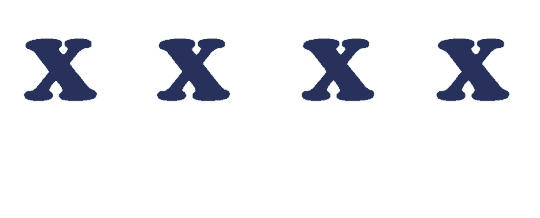
ESTP:
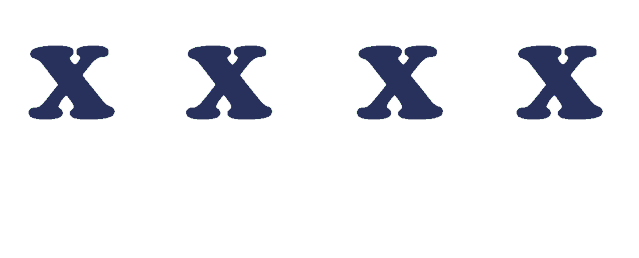
ESTJ:
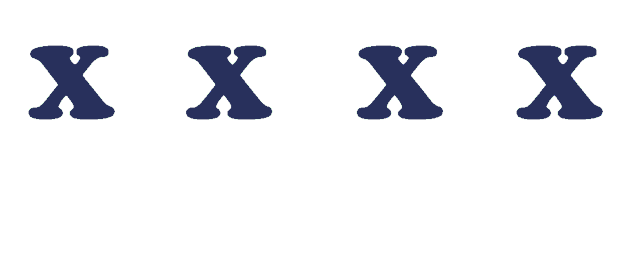
INFJ:
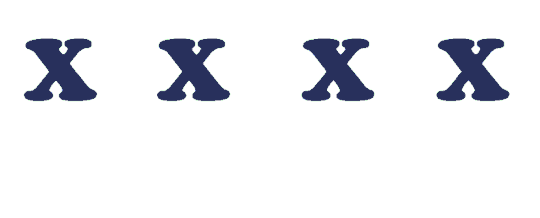
I hope this helps!!! You can ask me further about stuff related to this post if youre still confused, i'll try answering as best to my knowledge! (i'm still learning thou coz LDKSFDHSLGF)
#mbti#mbti types#mbti personalities#mbti personality types#estj#esfj#istj#isfj#estp#esfp#istp#isfp#entj#entp#intj#intp#enfj#enfp#infj#infp#cognitivefunction#mbti stuff#mbti cognitive stack#essay#explanation#tips#guide#text#gif#sxthee posts
17 notes
·
View notes
Text
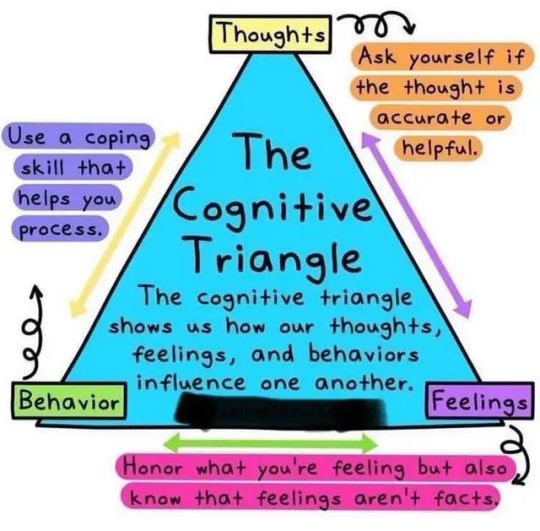
14 notes
·
View notes
Text
For anyone struggling:
I did something very similar myself many many years ago in order to help let go of the triggers related to my teenaged depression.
It helped me move on from an extraordinarily bad cycle in my life and leave it behind me
I shortly thereafter moved straight into one filled with anxiety due to my exes death, but the techniques I learned during that period helped with managing that as well
I'm not really a therapy type person and find counsellors personally annoying, judgemental, and find the idea of talking to someone as opposed to action a waste of energy
So if it's also not your cup of tea you might find this useful if you find it uncomfortable to have to discuss your personal issues with a stranger or simply prefer something more pragmatic in its approach that you can do on your own
You can't stop the feelings from coming, but you can learn to have some control of how you react to them
This will not mean freedom from the effects of stress and trauma, nor will it prevent it from being triggered again, but it can give you the tools you need to help yourself manage your way through to the other side of it again
It can help you build it into a reflexive habit and help you to learn to understand how your brain is affected by stress what it can do to your perspective on things
12 notes
·
View notes
Text
What personality type is Chirin from Chirin no Suzu / Ringing Bell?

Hello fellow reader. You're probably familiar with the 16 personality types. I've watched Chirin no Suzu / Ringing Bell several months ago and rewatched it recently and wanted to find the personality type the main character Chirin most likely has. I'll be primarily using the book, Sanrio adaptation and to a lesser extent the Kamishibai adaptation as reference points.
Note: Since this is an evaluation on Chirin's personality and the fact he goes through a lot of character development, there will be spoilers. Feel free to click the links on any of the adaptations if you would prefer to know the story before any spoilers.
In order to find Chirin's personality type, I figured it would best to start with the cognitive functions (I'll be providing titles for the different sections of this post considering how long it is to make it easier to skim through specific parts).
What are the cognitive functions?
Simply put, the cognitive functions are a theory that was pioneered by Carl Jung and are all about how your mind processes information and reacts to the world around you. Each personality type has a dominant function, auxiliary (or secondary) function, tertiary function and an inferior function. Every personality type has a sensing function, an intuitive function (both are perceiving functions), a thinking function, and a feeling function (both are judging functions) but whether each function is focused outward or inward varies between each personality type.
Here are a couple good references for the cognitive functions.
Perceiving Functions
Extraverted Sensing (Se) Se users are highly attuned to the present moment and like to use their five senses to take in information. Se users are also amazing at created an exciting atmosphere for the crowd thanks to their use of five senses allowing them to have awareness of what others enjoy. Se can also be shown through both a preference for more sophisticated tastes and high energy thrills. Dominant function of the ESTP and ESFP.
Introverted Sensing (Si) Si users rely on past experiences to determine the actions they take and will use said past experiences as a comparison to the present. Tend to have excellent memories especially with what matters to them the most and can be nostalgic and sometimes hesitant to new ideas. Dominant function of the ISTJ and ISFJ.
Extraverted Intuition (Ne) Ne users are the champions of brainstorming and have helped pioneered some of the most unconventional yet awesome concepts you can think of and can also have a knack for finding connections in areas that can be drastically different at first glance. Dominant function of the ENTP and ENFP.
Introverted Intuition (Ni) Ni users are focused inward and use their instincts as a guide in life. In contrast to the Ne user's love for exploring multiple paths Ni users prefer to stick with what their gut says is the best path. Ni users can also be excellent on following through their goals and picking up on what are the ulterior motives for others. Dominant function of the INTJ and INFJ.
Judging Functions
Extraverted Thinking (Te) Te users focus on logic and reason in a pragmatic sense, preferring what is the most effective way to get the job done, especially within the context of a group. They can be very charismatic and plenty of Te users enjoy going to leadership roles. Dominant function of the ESTJ and ENTJ.
Introverted Thinking (Ti) Ti users rely on their own logic and reasoning and are excellent at gathering information on the inner workings of a system. They rely less on concrete statistics and much more on what logically makes sense to them. Dominant function of the ISTP and INTP.
Extraverted Feeling (Fe) Fe users rely on ethics to form their decisions and are heavily driven towards helping their community and can be very self-sacrificial. They are also very empathetic to how others are feeling and act conscientious in return. Dominant function of the ESFJ and ENFJ.
Introverted Feeling (Fi) Fi users are heavily attuned to their own feelings and highly value authenticity over conforming to the group. They prioritize their own moral compass instead of established ethics and rules. Can be very empathetic towards individuals who have been in similar circumstances they've been in and can also hold sentimental attachments to objects and people. Dominant function of the ISFP and INFP.
As mentioned before, each personality type has a function that's sensing, intuition, thinking and feeling. In addition, two of these functions will be extraverted and two introverted. Your dominant and auxiliary functions also determine your tertiary and inferior functions.
For example, if you're an ISTJ, your dominant function is Si and your auxiliary function is Te. Your tertiary function is the opposite of your auxiliary function and your inferior function is the opposite of your dominant function, which means for an ISTJ they would respectively be Fi and Ne! Notice that for an introverted function its opposite would be extraverted in return.
To put it simply: Se pairs with Ni Si pairs with Ne Te pairs with Fi Fe pairs with Ti
Also note that for dominant and auxiliary functions one will be extraverted and one introverted. Same goes with tertiary and inferior functions.
What types have what cognitive functions?
INTJs, ENTJs, ESFPs, and ISFPs all have Se, Ni, Te, and Fi INFJs, ENFJs, ESTPs, and ISTPs all have Se, Ni, Ti, and Fe INTPs, ENTPs, ESFJs, and ISFJs all have Si, Ne, Ti, and Fe INFPs, ENFPs, ESTJs, and ISTJs all have Si, Ne, Te, and Fi
Now despite each group having the same cognitive functions, they are all stacked in different orders. ISFJs and INTPs have the same cognitive functions but their different stacks (Si, Fe, Ti, Ne for ISFJ and Ti, Ne, Si, and Fe for INTP) leads the two to process and take in the world differently!
What are Chirin's cognitive functions?
Going through all the cognitive functions and going by the story presented in the book, Sanrio film and Kamishibai, I can safely say Chirin does NOT have Ti or Ne. He isn't the type to rely on internal logic or curious about the inner workings of systems nor is he the type that likes to brainstorm or find connections in the most unexpected places. And because cognitive functions are always complemented by their opposite we can also remove Fe and Si. This leaves Chirin to have Se, Ni, Te, and Fi.
Chirin's personality type
Now all that's left is to figure out how the cognitive functions stack up.
If Chirin is an ESFP that would make his dominant function Se and inferior function Ni, however given that Chirin is very determined when he has a goal to reach and demonstrates impressive degrees of willpower makes it unlikely Ni would be his inferior function. At the same time Se doms aren't the type to isolate themselves when in major guilt like Chirin did in the original book making him unlikely to be an ESFP.
If Chirin is an INTJ that make his dominant function Ni and inferior function Se, however given that Chirin is very curious about his surroundings even as a lamb, to the point he wears the titular bell because of his tendency to get lost, and has demonstrated high levels of dexterity and quick reflexes make him unlikely to be an INTJ.
If Chirin is an ENTJ that would make his dominant function Te and his inferior function Fi, however given that Chirin is well aware of his own feelings and heavily affected by losing his mother even as an adult make it unlikely for Fi to be an inferior function. At the same time, he doesn't show interest in taking on a leadership role or repressing his feelings like many high Te users making him unlikely to be an ENTJ.
If Chirin is an ISFP that would make his dominant function Fi and his inferior function Te. Going by the book, Sanrio film and Kamishibai adaptations, Chirin is heavily guided by his own inner emotions. He judges others on a good vs. bad instance (explaining his initial hatred and desire to kill Woe) and follows his emotional gut over thinking things through. He demonstrates heavy sentimentality towards the individuals he cares about, most notably his mother but even realizes too late he has also come to view Woe in a similar way. Having Fi dom also puts him at odds with the other sheep who are very much synonymous with Fe. In the Kamishibai adaptation, a mother sheep warns her lambs to be careful in case Chirin decides to kill them, displaying Chirin's decisions as a very non-conformist path compared to the other sheep. The Sanrio adaptation also shows him trying to save a mother bird's eggs and refusing to kill a mother sheep and her lamb because both are instances that reminded him of the trauma he has gone through, emphasizing with both instances on a personal basis. Chirin having inferior Te can also be seen in him having a subconscious desire to become a stronger creature as a reaction to going through a tragic experience. Despite his attempt to give a cold and aloof demeaner as he gets older, he's deep down a tragic soul struggling to properly grieve over losing his mother and later Woe, the latter being also a double whammy of guilt on his end. As a result, Chirin is very likely to be ISFP.
Whew, that was a long post, but I hope you enjoyed it! It was a lot to type, but I still had fun putting this little essay together!
#my posts#blog#mbti#cognitivefunction#cognitive functions#16 personalities#16 personality types#chirin no suzu#ringing bell#chirin's bell#chirin#sanrio#takashi yanase#lamb son#ram son#long post
7 notes
·
View notes
Text
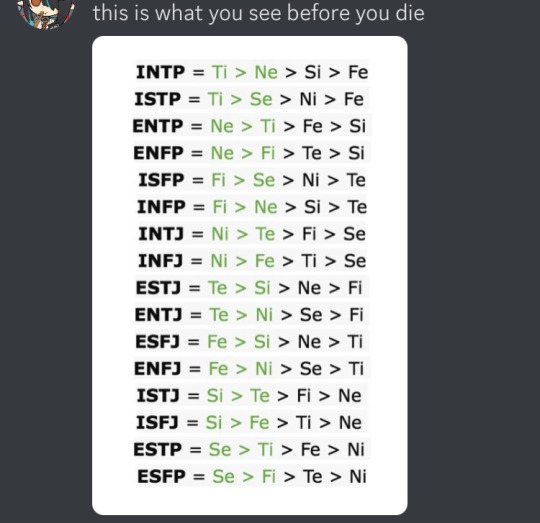
This is forever ingrained in my head
#mbti types#mbti personalities#mbti personality types#mbti#cognitivefunction#cognitive functions#RANDOM SCREENSHOT FROM MY PHONE LMAOO
5 notes
·
View notes
Text
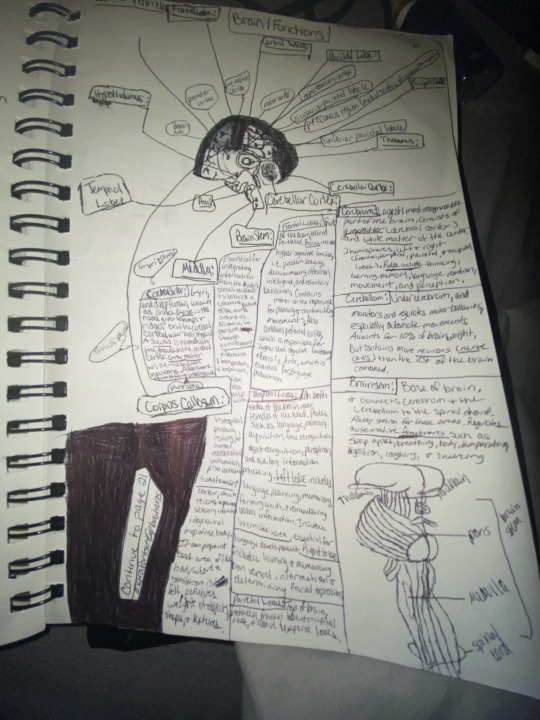
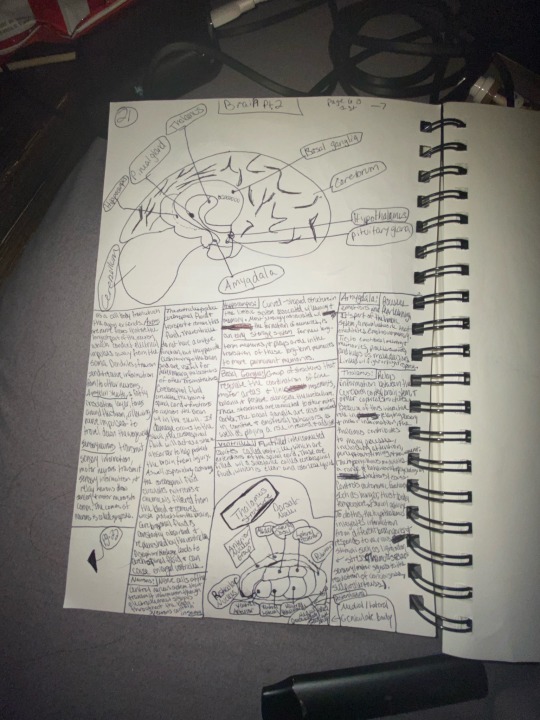
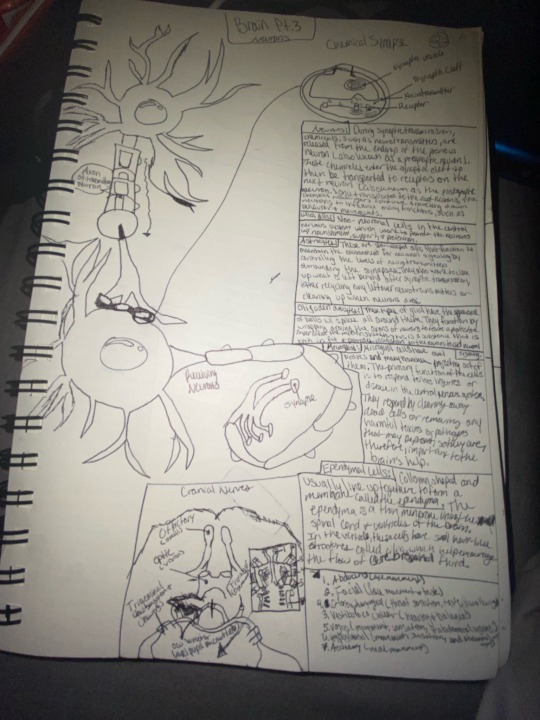
Got some notes for fun, hope these can be useful.
#cognitive#cognitive behavioral therapy#cognitive science#cognitiveenhancement#cognitivefunction#psych ward#psych#psychology#self help
3 notes
·
View notes
Text
Se which focuses on what is focusing around them, the objective environment and how they process it based on what they're experiencing. dominant function for ESxPs
Ne focuses on the present too, but gathers up ideas to formulate these ideas that can be seen as farfetched due to them being scattered. dominant function for ENxPs
Ti is like what you formulate to evaluate the world based on what you personally think makes sense, that could implement into a basis. dominant function for IxTPs
Fi is similar to Ti but. it's based on what you value, see as right or wrong to you, and acting based on those feelings that feel true, or whatever you feel is true to yourself, even if it may go against public opinion. Dominant function for IxFPs
Te is an objective function that is rational, focusing on proof and public opinion, but more so gathering up resources to form a conclusion that goes for it. it is organized and is an intellectual formula, that is impersonal. Dominant functions for ExTJs
Fe is also objective and rational, can be seen as Te, but it's more so what others feel like is right to formulate the conclusion, soaking in public opinion based on what everyone feels is right. Dominant function for ExFJs.
Si focuses internally, based on a pattern that is like a library, sorting out what they think is comfort, present focused that is lined up in a way they can collect like data. Dominant function for ISxJs
Ni focuses like Si, but it connects things in a linear way that is like "okay so if this happens then this conclusion happens." So one connection that heads for a result. Dominant function for INxJs.

6 notes
·
View notes
Text
#NationalConferenceOfStateLegislatures
#NationalConferenceOfStateLegislatures#deardearestbrands#bandai#digimon#sega#sanriofighterdigit#chanel#sanrio#mattel#soundcloud#enxanting#BBB#betterbusinessbureau#cognitivefunction#cognitive behavioral therapy#cognitiveBehavioralRecognition#eccel#accel#ascension#achievement#inception#nudge#nudging#forceOfWill#CastleDoctrine#self defense#selfdefenseForce#enxantingxmen#change#water
2 notes
·
View notes
Text
AAAAAAAAAAAAAA I'VE BEEN STRUGGLING TO MEMORIZE THE MBTI COGNITIVE FUNCTIONS BUT JUST TODAY EVEYRHTING CLICKED. EVERYTHING MADE SENSE HHHHHHHHHHH WILL BE POSTING MY LOGIC OR REASONING LATUR
#AAAAAAAAAAAAAAAA#AM SO PUMPED#IDK IF ITS A HARDER OR EASIER EXPLANATION BUT I'LL SHARE LATUR CAUSE OMG YES A PERSONAL BREAKTHRU!!!!!#mbti#mbti types#cognitivefunction#text#sxthee posts
2 notes
·
View notes
Text
A summary of the 10 essential principles for aging well covered in "Brain Rules for Aging Well" by John Medina:
Exercise - Regular physical activity is crucial for maintaining cognitive function, mood, and physical health as we age.
Sleep - Getting quality sleep is vital, as poor sleep is linked to accelerated cognitive decline and increased risk of dementia.
Stress - Learning to effectively manage stress through relaxation techniques, social connection, and cognitive strategies can slow age-related mental deterioration.
Nutrition - Eating a nutrient-dense diet rich in vegetables, fruits, whole grains, and healthy fats nourishes the brain and body.
Learning - Continuously challenging the brain with new skills and information helps maintain mental sharpness.
Purpose - Maintaining a sense of purpose and meaning in life is associated with better cognitive and emotional wellbeing.
Social Connection - Staying socially engaged and nurturing relationships are protective against cognitive decline.
Music - Actively engaging with music, whether playing an instrument or simply listening, boosts brain health.
Relaxation - Taking time to unwind and restore through practices like meditation helps counteract the damaging effects of stress.
Optimism - Cultivating a positive, hopeful mindset can enhance physical and mental resilience as we age.
Following these 10 principles can help you stay vital, happy, and sharp for years to come, according to brain expert John Medina.
#brainhealth#agewell#cognitivefunction#mentalsharpness#successfulaging#healthyaging#longevity#vitality#positiveaging#brainrules#brainfitnessexpert#neuroplasticity#johnmedina#agingwell#brainhack#mentalresilience
6 notes
·
View notes
Text
Fast Brain Booster: How to Improve Your Memory and Focus
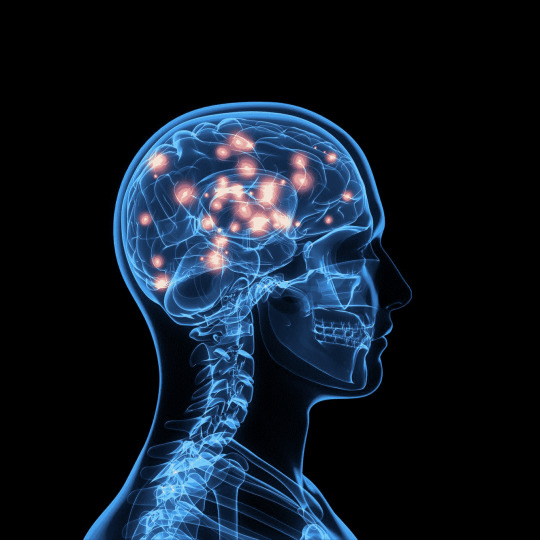
Are you looking for a way to improve your memory and focus? If so, you may be interested in trying a fast brain booster. A fast brain booster is a supplement or medication that can help improve cognitive function.
There are many different types of fast brain boosters available, and each one works in a different way. Some fast brain boosters work by increasing blood flow to the brain, while others work by increasing the production of neurotransmitters.
If you are considering taking a fast brain booster, it is important to talk to your doctor first. Fast brain boosters can have side effects, and it is important to make sure that they are safe for you to take.
Here are some natural ways to boost your brain power:
Get enough sleep. Sleep is essential for brain health. When you sleep, your brain consolidates memories and clears out toxins.
Eat a healthy diet. A healthy diet provides your brain with the nutrients it needs to function properly. Make sure to include plenty of fruits, vegetables, and whole grains in your diet.
Exercise regularly. Exercise is good for your overall health, and it can also help improve your brain function. Aim for at least 30 minutes of moderate-intensity exercise most days of the week.
Reduce stress. Stress can take a toll on your brain health. Find healthy ways to manage stress, such as exercise, yoga, or meditation.
#FastBrainBooster #Memory #Focus #CognitiveFunction #Supplement #Medication #NaturalWaysToBoostBrainPower

By following these tips, you can improve your memory, focus, and overall brain health.
9 notes
·
View notes
Text

Exploring Aromatherapy and Essential Oils: Unleashing the Power of Nature
Aromatherapy, a centuries-old practice, harnesses the therapeutic properties of essential oils to promote holistic well-being and enhance the mind, body, and spirit. In this article, we dive into the world of aromatherapy, uncovering the benefits of essential oils and their transformative effects on our health and emotions.
Facts about Aromatherapy and Essential Oils:
Enhancing Mood and Relaxation:
Essential oils have unique aromatic compounds that can positively influence our mood and emotions.
Lavender oil, for example, is known for its calming properties, promoting relaxation and reducing stress and anxiety levels.
Supporting Physical Well-being:
Many essential oils possess natural healing properties that can aid in physical well-being.
Tea tree oil, renowned for its antiseptic and antimicrobial qualities, can be used to support healthy skin, soothe minor skin irritations, and promote a clean environment.
Boosting Cognitive Function:
Certain essential oils can enhance cognitive function, memory, and focus.
Peppermint oil, with its invigorating and stimulating properties, may help improve mental clarity, concentration, and overall cognitive performance.
To delve deeper into the transformative world of aromatherapy and essential oils and discover how they can enhance your well-being, click the link below to read the full article.

#Aromatherapy#EssentialOils#HolisticWellness#NaturalHealing#MoodEnhancement#Relaxation#StressRelief#EmotionalWellbeing#MindBodySpirit#CognitiveFunction#WellnessJourney#SelfCare#AromaticEssences#TherapeuticBenefits#NaturalRemedies
2 notes
·
View notes